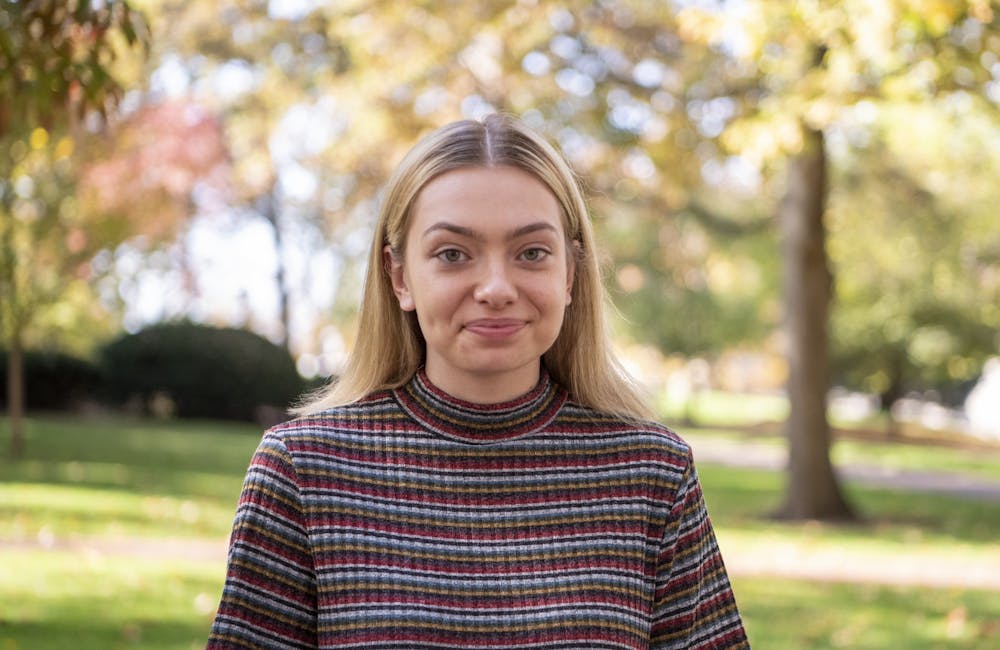Recent media attention for ableism in Hollywood has paved the way for change. Movies like Music and What’s Eating Gilbert Grape have been criticized for their characters being portrayed by physically and mentally able actors. These are examples of ableism in the industry, which does not typically include actors who are disabled to fill these roles. These critiques, however, call into question non-LGBTQ actors who fill roles as LGBTQ and even actors who fill roles as different races and ethnicities.
A recent example would be the Netflix movie The Prom which stars James Corden as Barry Glickman, a gay Broadway actor who helps the main character take her girlfriend to prom. His performance has been criticized as “homophobic,” and “aggressively flamboyant,” as Corden portrayed many gay strereotypes throughout the movie. The character even described himself as “gay as a bucket of wigs.”
Corden’s performance was both extremely offensive and upsetting. As a straight man, he did not have the real life experience of portraying a gay man. He had to have based his role on stereotypes of the gay community and depicted those in the movie. This role needed to have been played by a member of the LGBTQ community.
There is no shortage of LGBTQ celebrities that are able to play these types of roles with authenticity and real experience. It’s time Hollywood gives these roles to LGBTQ actors to break stereotypical roles of the community. We need diversity in the actors in addition to the diversity being portrayed on the screen.
For years, many straight and cisgender actors are been praised for their LGBTQ roles. Actors Timothée Chalamet in Call Me By Your Name and Nick Robinson in Love, Simon have both been applauded for their portrayals of gay men in recent movies. Both of these actors, however, are straight.
One actor who openly spoke about her role as a lesbian was Academy Award-winning actress Julianne Moore as Jules in The Kids Are All Right. She told Variety that she does not know if she would play a lesbian character again, instead opting for the role to go to a lesbian actress.
“I’ve thought about that a lot. Here we were, in this movie about a queer family, and all of the principal actors were straight. I look back and go, ‘Ouch. Wow.’ I don’t know that we would do that today. I don’t know that we would be comfortable,” Moore said.
I would not want to take away from these actors, because they were still able to give amazing performances. However, an LGBTQ actor would be better suited for these roles based on their personal experiences and ability to recognize previously perpetuated stereotypes.
Not only has Hollywood made it acceptable for straight actors to play LGBTQ roles, it has normalized actors playing roles of different races and ethnicities.
In June, actress Jenny Slate announced she would no longer voice the character of Missy Foreman-Greenwald in the Netflix show Big Mouth. Missy is a young mixed-race girl and Slate is a jewish woman. She wrote in an Instagram post why she thought it was acceptable to play this role at first, but is actually an example of “white privilege.”
“At the start of the show, I reasoned with myself that it was permissible for me to play ‘Missy’’ because her mom is Jewish and White - as am I. But ‘Missy’ is also Black, and Black characters on an animated show should be played by Black people,” Slate said.
Hollywood has made it too easy for cisgender, straight and white actors to play roles of different sexualities, races and ethnicities. When they are given these roles, they are portraying stereotypes that are offensive and untrue. It’s essential that more diverse actors are shown in movies and tv shows. It’s not enough just to have diverse characters played by people who cannot relate.
Hannah Campbell is a freshman studying journalism at Ohio University. Please note that the views and opinions of the columnists do not reflect those of The Post. Do you agree? Tell Hannah by tweeting her at @hannahcmpbell.






